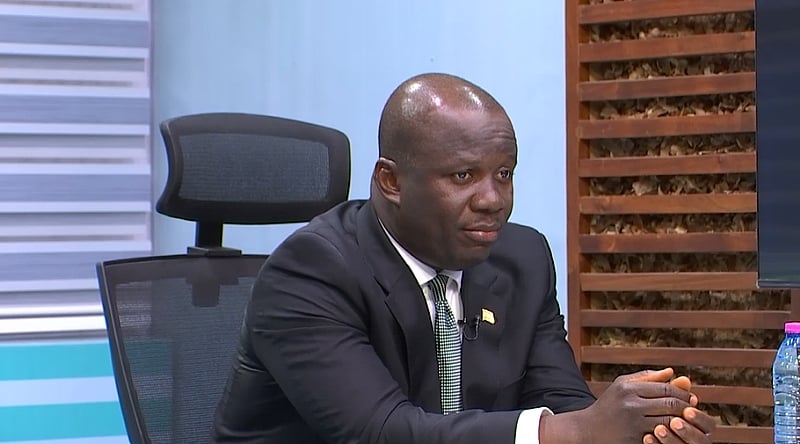Samuel Abu Jinapor, Member of Parliament for Damongo and former Minister of Lands and Natural Resources, found himself at the center of a political debate regarding the size and cost of President John Mahama’s administration. The controversy stemmed from comments Jinapor made that were interpreted as an accusation that President Mahama had appointed over 100 presidential staffers. This prompted a swift response from the government, represented by Felix Kwakye Ofosu, Minister of State for Government Communications, who categorically denied the claim, stating the actual number of presidential staffers was 30, including three directors for specific interventions. Jinapor subsequently clarified his statement, explaining that his reference to a figure approaching 100 encompassed both ministers and presidential staffers combined, not solely presidential staffers.
The core of Jinapor’s argument revolved around the overall financial burden imposed on the state by the cumulative number of appointees. He expressed concern that the salaries and benefits enjoyed by some presidential staffers were comparable to those of ministers, thereby significantly contributing to government expenditure. This concern transcended the mere number of appointees and touched upon the broader issue of fiscal responsibility and the efficient allocation of public resources. While acknowledging the government’s clarification regarding the specific number of presidential staffers, Jinapor maintained his position that the total number of appointees, including ministers, represented a substantial financial commitment.
Jinapor’s initial comments, though later clarified, highlighted the sensitivity surrounding the size and perceived cost of government administrations. In political discourse, the number of presidential appointees frequently serves as a proxy for efficiency and prudent financial management. A large number of appointees can be perceived as indicative of bloated bureaucracy and excessive spending, while a smaller number can be presented as a sign of fiscal restraint. Jinapor’s remarks, regardless of their intended meaning, tapped into this prevailing public sentiment regarding the optimal size of government.
The government’s response, delivered by Kwakye Ofosu, aimed to swiftly address the potential negative implications of Jinapor’s statement. By providing a precise breakdown of the number of presidential staffers and including the three directors for specific interventions, the government sought to demonstrate transparency and counter the narrative of an excessively large presidential staff. The emphasis on the distinction between ministerial appointments and presidential staff appointments further underscored the government’s effort to clarify the structure and size of the administration.
Despite the controversy surrounding his initial remarks, Jinapor expressed his support for President Mahama’s decision to appoint 56 ministers. He qualified his endorsement by stating that the appointments were commendable provided the ministers delivered on their responsibilities. This nuanced position reflected a recognition of the importance of ministerial leadership while simultaneously emphasizing the need for tangible results and effective governance. Jinapor’s stance underscored the importance of performance and accountability in public office.
This incident underscores the importance of clear and precise communication in political discourse. Jinapor’s initial statement, though later clarified, demonstrates how easily nuanced arguments can be misconstrued in the public arena. The swift response from the government, coupled with Jinapor’s subsequent clarification, highlights the need for ongoing dialogue and clarification to ensure that public discourse remains accurate and productive. Ultimately, the debate centers on the fundamental question of how to balance the need for effective governance with the imperative of fiscal responsibility. This necessitates a careful consideration of the size and cost of government administration, as well as the performance and accountability of those appointed to public office.














